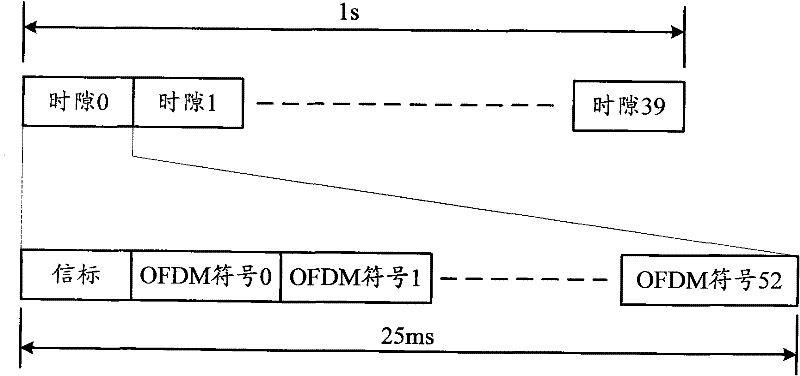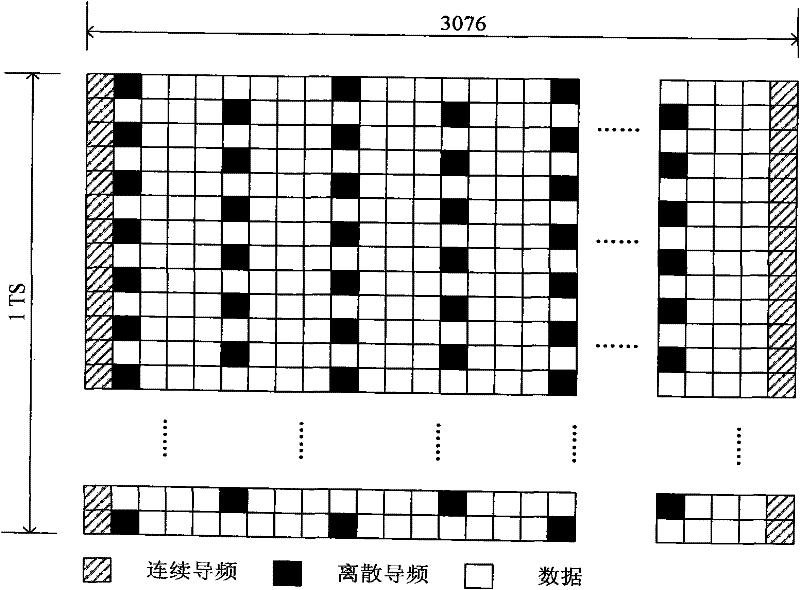Signal-to-Noise Ratio Estimation Method and Device for Orthogonal Frequency Division Multiplexing System
A technology of signal-to-noise ratio estimation and orthogonal frequency division, which is applied in the field of signal-to-noise ratio estimation of OFDM systems, can solve the problem of low precision and achieve the effect of improving precision, increasing the number of subcarriers, and insensitivity to channel conditions
- Summary
- Abstract
- Description
- Claims
- Application Information
AI Technical Summary
Problems solved by technology
Method used
Image
Examples
Embodiment Construction
[0043] The invention provides a method and device for estimating the signal-to-noise ratio of an OFDM system, which uses synchronous symbols in a frame structure to estimate the signal-to-noise ratio, and can effectively improve the estimation accuracy of the signal-to-noise ratio of an OFDM system terminal received signal.
[0044] Figure 4 It is a flow chart of the first embodiment of the OFDM system signal-to-noise ratio estimation method of the present invention. This embodiment takes the CMMB system as an example to illustrate the OFDM system signal-to-noise ratio estimation method of the present invention. The signal-to-noise ratio estimation method of the present embodiment includes:
[0045] Step S401: Extract and store time-domain data of a synchronization symbol according to system timing. Specifically, it can be seen from the frame structure defined by the CMMB that there are 2048 pieces of time-domain data of one synchronization symbol extracted according to the ...
PUM
 Login to View More
Login to View More Abstract
Description
Claims
Application Information
 Login to View More
Login to View More - R&D
- Intellectual Property
- Life Sciences
- Materials
- Tech Scout
- Unparalleled Data Quality
- Higher Quality Content
- 60% Fewer Hallucinations
Browse by: Latest US Patents, China's latest patents, Technical Efficacy Thesaurus, Application Domain, Technology Topic, Popular Technical Reports.
© 2025 PatSnap. All rights reserved.Legal|Privacy policy|Modern Slavery Act Transparency Statement|Sitemap|About US| Contact US: help@patsnap.com



